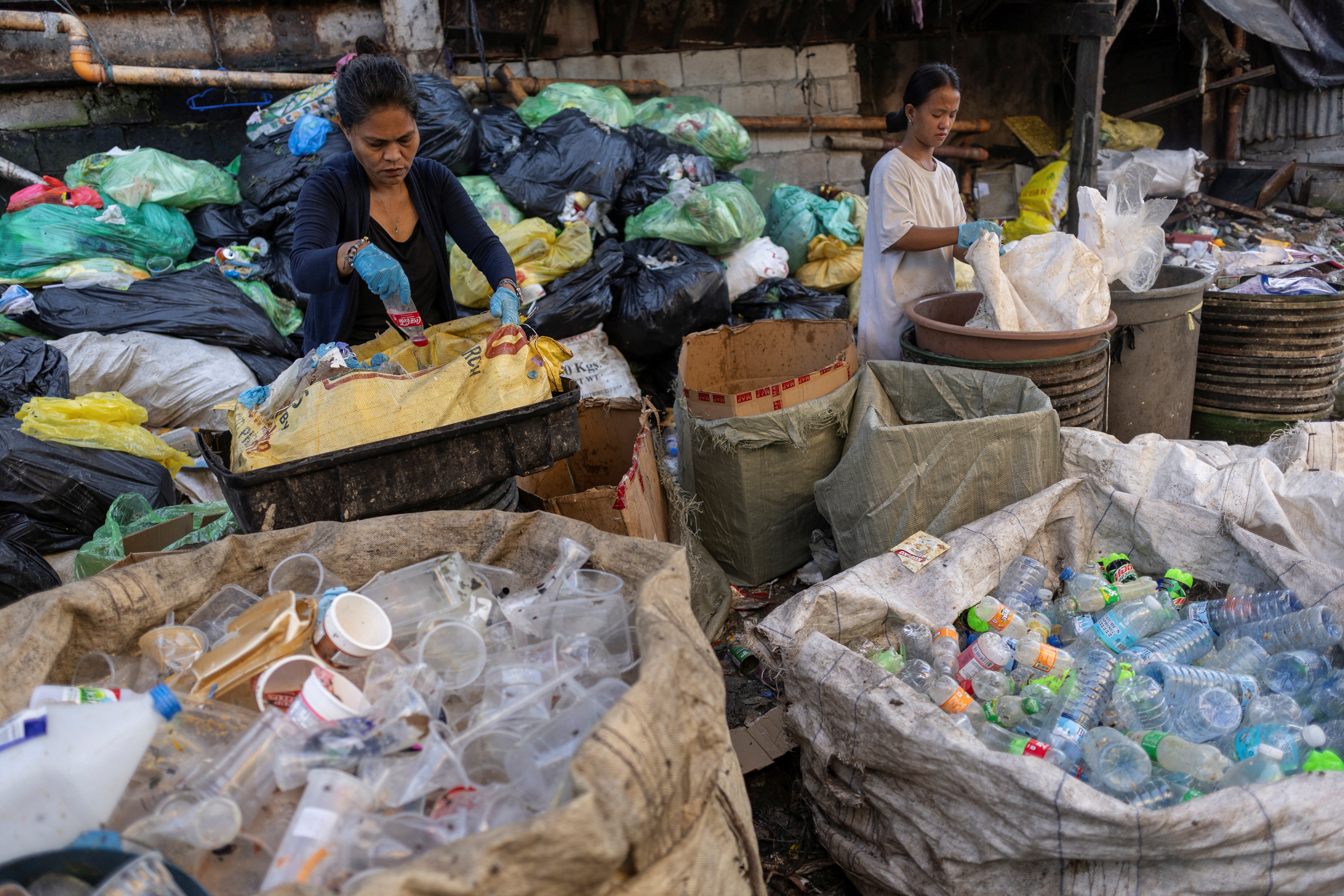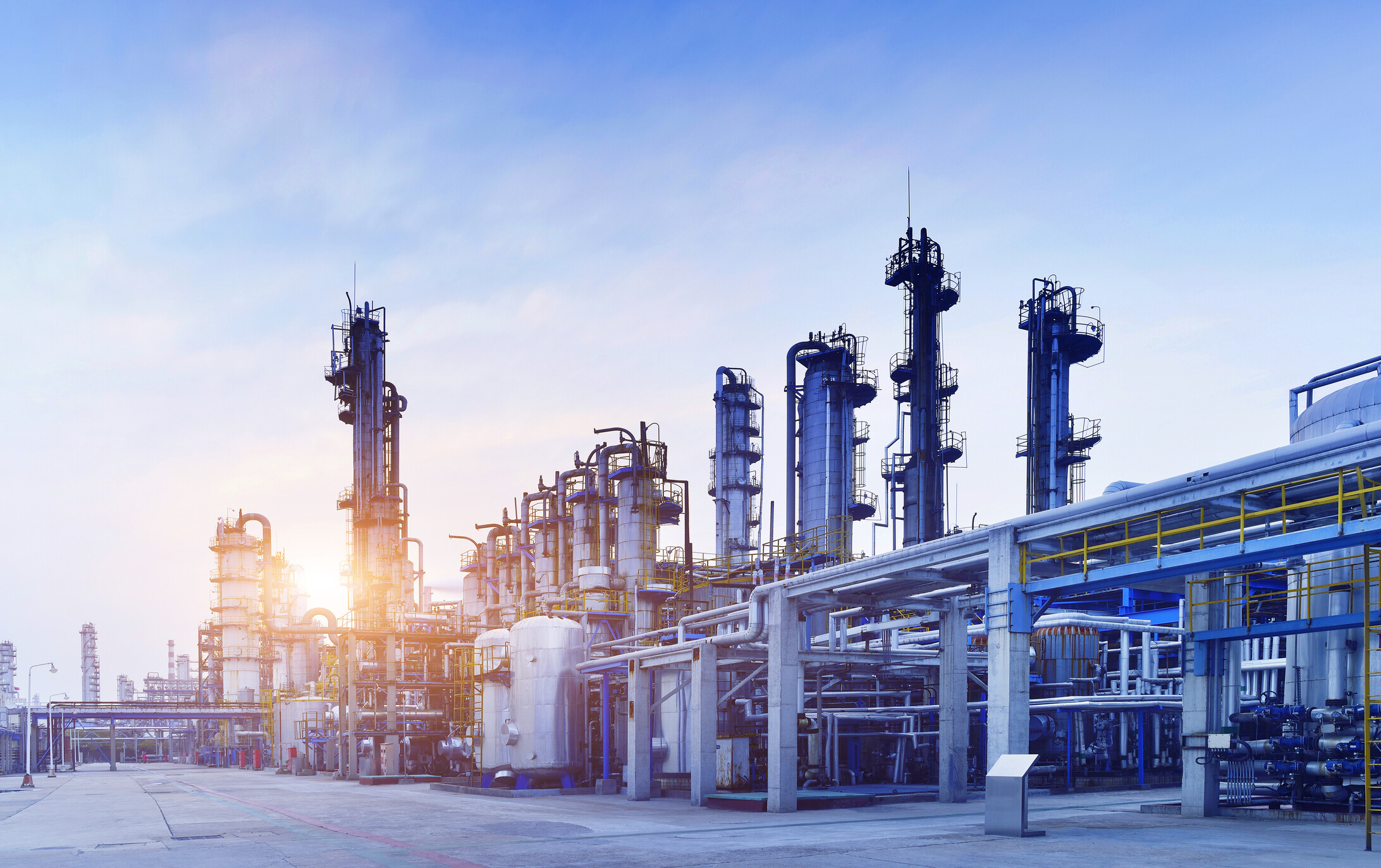Plastic is a global problem. It’s also a global opportunity

New technologies and approaches could transform waste plastic from a problem into a huge opportunity Image: REUTERS/Regis Duvignau
Plastic: a most versatile and ubiquitous material, it is difficult to imagine life without it. Despite the growth it has enjoyed for decades, the detriment caused to society and the environment by its abundance can no longer be ignored. With 13,000 pieces of plastic litter found in every square kilometre of ocean, and the manufacture of four plastic bottles producing a level of greenhouse gas emissions equivalent to travelling one mile in a medium-sized petrol car, there has never been a more pressing time to reinvent traditionally linear modes of production.
Antoine Frérot, CEO of Veolia, notes the steep increase in plastic production over the last half-century, from 15 million tonnes during the 1960s to a reported 311 million tonnes in 2014. This figure is expected to triple by 2050, when plastic production may account for 20% of global annual oil consumption.
The Ellen MacArthur Foundation estimates the costs arising from single-use plastics, together with those of the greenhouse gases emitted during production, to be $40 billion. This staggering figure exceeds the current plastic industry’s profit pool and further strengthens the arguments for why current plastic production and consumption must be curbed. It simply no longer makes financial, social or environmental sense.
As the global movement to protect the planet against spiralling plastic production continues to gain momentum and the industries responsible for its production face new heights of scrutiny, a new plastics opportunity has emerged for business to both create value and drive more sustainable practice simultaneously.
Plastic as its own raw material
With this new plastics opportunity in mind, could plastic become its own solution? If the cornerstone of circular economy thinking is applied to plastics; if economic growth is decoupled from limited natural resource use; and if new ways are found to reuse plastic products already in existence - the versatility of plastic may span new heights, create new value for businesses and protect and future-proof our planet.
If regulatory and voluntary measures prioritizing recycling and recovery can also align with sustainable innovation and new technological advancements, the global need for virgin plastic could be dramatically reduced. For example, at present the treatment, recycling and collection of plastic packaging varies depending on the plastic type in question. This makes the appropriate action to take unclear, and disincentivizes correct resource-recovery practices. As some suggest, a global standardization of plastic packaging types may be one solution to this issue. This could be realized through a fusion of public sector collaboration to create effective policies, coupled with self-regulated industry standards – resulting in improved recycling rates and easier resource recovery.
The New Plastics Economy Global Commitment was announced by UN Environment and the Ellen McArthur Foundation in October 2018 and has more than 290 signatories. The commitment shows that many major public and private actors are now advocating for a circular economy model that closes the loop on plastics production and encourages innovative reuse. It is the view of these organizations that with the correct regulatory and policy boundary conditions, incentives and price signals, improved environmental consequences and increased economic growth can be concurrently achieved.
By closing the loop, plastics would no longer be classified as waste. They would instead act as a key source of value, entering and re-entering the value chain as technical and biological inputs. This closed-loop solution has gradually begun to gain momentum as businesses realize the potential size of the prize on the table now that the technology exists to enable the use of plastic as a raw material in future plastic production.
Technological innovation driving change
The era which we are entering, known as the Fourth Industrial Revolution, is defined largely by rapidly developing technological capabilities. The World Economic Forum and Accenture Strategy have identified three types of technologies that support the transition to a circular economy, which span the digital, physical and biological realms. Sustainable innovation must be at the heart of the development of the technological capabilities that are fundamentally altering the world in which we live. A sustainable plastics innovation engine is already whirring into life, with many pioneering companies such as Banyan Nation, Evian & Loop Industries, Bureo and Perpetual Global using these Fourth Industrial Revolution technologies to lead the charge in creating a new, waste-free plastics reality.
One of India’s first vertically integrated plastic recycling companies and the Circulars People’s Choice Award Winner for 2018, Banyan Nation has developed a pioneering technology capable of converting collected post-consumer and post-industrial plastic wastes into high-quality recycled granules, known as Better Plastic™. These granules are comparable in quality and performance to virgin plastic. Banyan’s award-winning data intelligence platform integrates thousands of informal recyclers into their supply chain, providing job security and improved livelihoods, in addition to helping cities manage their waste more effectively
In a similarly innovative move, Perpetual has developed and brought to market a sustainable and cost-effective technological process that alters post-consumer PET bottles into high-quality, sustainable (poly)ester used to make new bottles, packaging film and textiles. This ester can directly replace other esters that have a higher carbon footprint.
Water giant Evian, in partnership with ground-breaking tech company Loop Industries, has publicly pledged that all its water bottles will be manufactured from recycled plastic by 2025. Loop Industries has developed a technological solution that enables the creation of high-quality plastic resin for Evian’s bottles without making any more plastic. Loop Industries’ technology uses a catalyst that can separate PET plastic into its individual monomers without heat or pressure. These monomers can then be remoulded into plastic resin and can subsequently filter out impurities, creating virgin-quality PET plastic resin at scale.
Where reduced resource use and increased economic gains are championed, plastic’s use as a raw material has the capacity for transformative change. Inspiring actors, such as Bureo, have already begun to showcase plastic’s value as a raw material. For example, Bureo’s ‘Netplus’ materials, made from discarded fishing nets, are being incorporated into the supply chains of industry-leading businesses such as Patagonia, and in the ‘Untangled Collection’ of Costa sunglasses. Since 2013, over 185,000kg of Netplus materials have been collected across participating Chilean coastal communities. Without Bureo, these materials are likely to have ended their life in the ocean.
Scale for the future
Inspirational businesses such as these are capable of scale and significant positive environmental shifts to protect the planet from further harm. These companies have provided a platform on which to showcase their pragmatic and scalable solutions and the economic and business opportunities ready to be captured by all who rotate towards more circular operations and products. The message is clear: the technology already exists to solve the problem of plastic as we know it, turning it into a new and valuable business opportunity.
There has never been a better, more important time to wholly embrace the technological developments enabled by the Fourth Industrial Revolution – turning our current problem with plastic into new opportunities, while protecting our planet. It is time to see the value in all plastic, and to begin to view used plastic not as a waste product, but rather as a new raw resource with infinite possibilities.
Don't miss any update on this topic
Create a free account and access your personalized content collection with our latest publications and analyses.
License and Republishing
World Economic Forum articles may be republished in accordance with the Creative Commons Attribution-NonCommercial-NoDerivatives 4.0 International Public License, and in accordance with our Terms of Use.
The views expressed in this article are those of the author alone and not the World Economic Forum.
Stay up to date:
Circular Economy
Forum Stories newsletter
Bringing you weekly curated insights and analysis on the global issues that matter.
More on Circular EconomySee all
Felipe Basso
November 13, 2025







